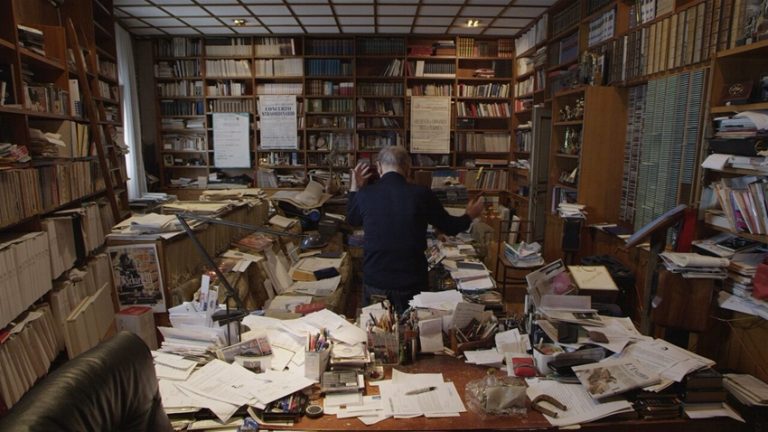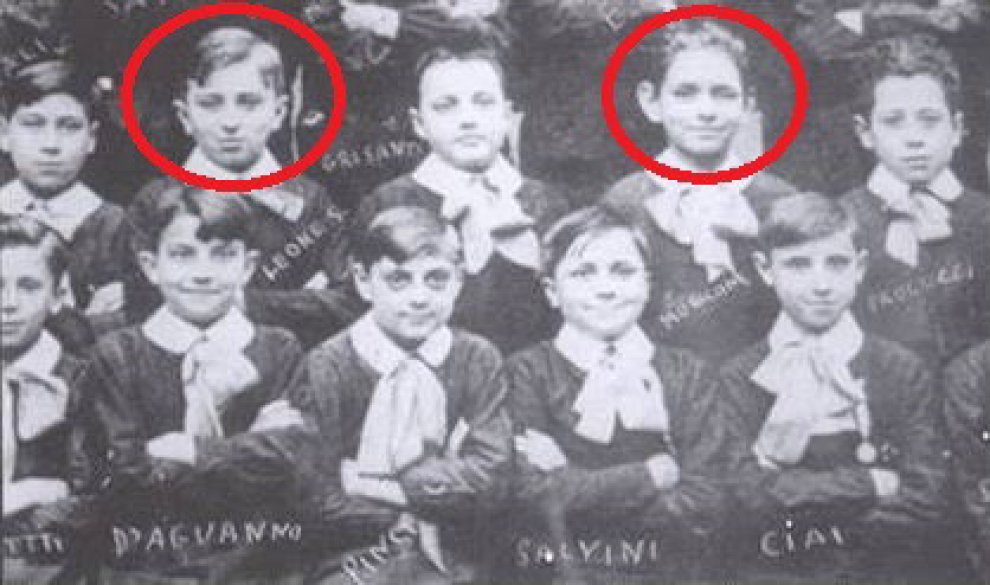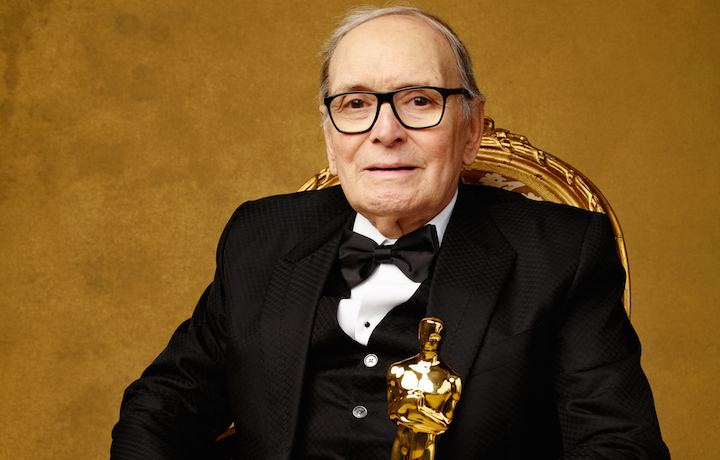
Ennio, directed by Giuseppe Tornatore, is a full-fledged portrait of Ennio Morricone, the most popular and prolific musician of the 20th century. He was revered by international audiences, received two Academy Awards and wrote over 500 unforgettable soundtracks.
“He’s my favourite composer, and I don’t just mean for movies. I mean in terms of Bach and everybody. He’s my favourite.” This is what Quentin Tarantino said when he was asked why he wanted to work with Ennio Morricone. Viewers will share Tarantino’s opinion after seeing the superb documentary by the director who worked with Morricone for quarter of a century, starting with the Oscar-winning film Cinema Paradiso.
![]()
Giuseppe Tornatore’s documentary is a mystical experience, retracing the humble origins of Ennio, up until his global recognition. Successfully presented Out of Competition at the Venice Film Festival and at Bif&st, the movie unveils Morricone’s persona through a long interview made by Tornatore with the Maestro. This intertwines with testimonies of artists and directors, such as Bernardo Bertolucci, Giuliano Montaldo, Marco Bellocchio, Dario Argento, Paolo and Vittorio Taviani, Carlo Verdone, Barry Levinson, Roland Joffè, Oliver Stone, Quentin Tarantino and Clint Eastwood. The composers and musicians who remember Morricone include, Bruce Springsteen, Hans Zimmer, Nicola Piovani, Pat Metheny and John Williams. In all of these chronicles, Tornatore weaves in rare archival footage that shows the early beginnings of the genius of our time.
Morricone’s father first taught him to read music and to play several instruments, especially the trumpet. Ennio wrote his first compositions when he was six years old and he was encouraged to develop his natural talents. He entered the Santa Cecilia Conservatory under the guidance of Umberto Semproni. For some time, the fledgeling musician was the breadwinner when his father couldn’t play with his band: Ennio would substitute him for the gigs at night and wake up early in the morning to go to school. Morricone continued his studies in composition and choral music under the direction of Goffredo Petrassi, to whom Morricone would later dedicate concert pieces. Both his teacher, and some of his class mates, like prominent composer Boris Porena, were purists and snubbed the idea that a composer could create music for the movies. It took them many years to recognise the outstanding brilliance of Ennio Morricone.
![]()
Before cinema, after playing the trumpet in jazz bands during the Forties, Morricone started working for RCA Victor in 1950, arranging popular songs of devotion for radio broadcasting. He eventually wrote scores as a ghost writer for movies that were credited to already well-known composers, while also arranging for many orchestras of the RAI television network. It was 1961 that marked his real film debut with Luciano Salce’s Il Federale (The Fascist), where his name first appeared in the credits. Through the decades he was courted by the most important film directors worldwide, who would ask him to score their films. His greatest cinematic partnership was with Sergio Leone, who happened to be a former schoolmate of his. Prior to being associated with Leone, Morricone already had composed some music for less-known western movies, but the whistle in A Fistful of Dollars became legendary. After that, so many of his musical themes became iconic, like the one of Investigation of a Citizen Above Suspicion, a film that people recognise because of this music, more than the plot.
Cinephiles will take delight in observing the origin in real life of some of his musical intuitions. These include the howl of the coyote that suggested to him the theme of The Good, the Bad and the Ugly, and the rhythmic drumming of the hands on tin cans by strikers at the head of a protest march through the streets of Rome that inspired the beautiful theme of According to Pereira.

But Ennio Morricone did not consider writing music for films his calling, he wanted to experiment with music. In fact, from 1964 up to their eventual disbandment in 1980, Morricone was part of Gruppo di Improvvisazione Nuova Consonanza (G.I.N.C.), a group of composers who performed and recorded avant-garde free improvisations.
He had studied effortlessly throughout his life, but this had simply instilled in him the discipline of composition. What he created was not a mere result of the teachings he received. He had acquired a method, but what allowed him to do what he did was his gift, one that can be found once every century perhaps. Music came to him. He would scribble tunes, hum certain sections while playing others on the piano. He enjoyed layering sounds, inspired my the masters who preceded him, like Stravinsky, and he did it with punctilious precision. His mathematical acumen was only matched by his skill for chess.

Humility was Ennio Morricone’s hallmark. Fame was something he never pursued, perhaps this is why it was thrust upon him. All that mattered to him was music: playing with it, and allowing the characters of the films he scored to channel their moods through it. He always withheld a childhood stupor towards the way the world adored his music. Even, when the Academy Award acknowledged his excellence with great delay. He was bestowed with an honorary Academy Award for Lifetime Achievement in 2007 (after being nominated 5 times between 1979 and 2001), and ultimately received the statuette in 2016 for the score of Quentin Tarantino’s film, The Hateful Eight.
Music was an extension of a taciturn and coy man who communicated his empathy through the language of sounds. This can be perceived also in Morricone’s composition Voices from the Silence, that he made in response to the terrorist attacks of 9/11, to honour the massacres of humanity all over the world.
He was married for over sixty years to Maria, a woman who took care of their children and of providing him a safe space to create. She was the first one to listen to his new pieces, and if she liked them he would continue working on them. She was the one, to whom he dedicated all of his accolades.
Those who’ve had the privilege to work with him could feel the energy spill out of him when he was jotting down ideas. Ennio Morricone’s propensity for invention found confirmation in his constant love of absolute music, and his relentless inclination to try novel approaches. When watching the film, audiences will be pervaded by a sense of awe and melancholia towards a talent that is no longer with us, but will feel proud to have been part of his epoch.
Final Grade: A+

